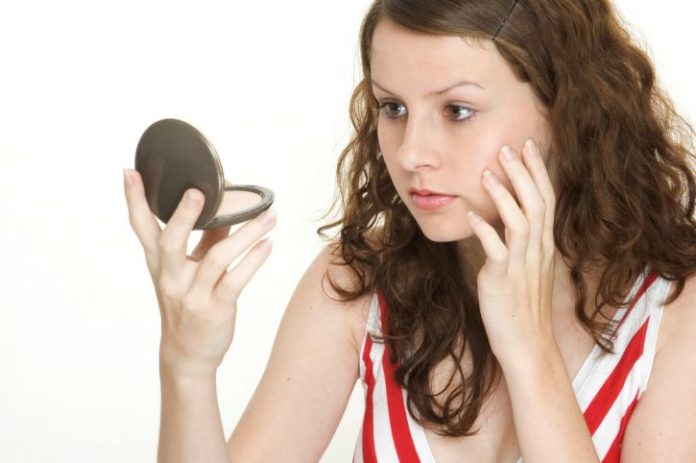Acne is the most common skin condition in the United States. Fortunately, acne can often be reduced with simple changes to a person’s skin care routine.
“It’s very common for patients with acne to scrub their skin and to use harsh products, yet doing so often makes acne worse,” said Amanda Friedrichs, MD, FAAD, a board-certified dermatologist in private practice in Sycamore, Ill. “In order for acne to improve, people with acne must be gentle when touching their skin and use gentle products, such as those that are alcohol-free.”
For clearer skin, Dr. Friedrichs recommends people with acne also follow these tips:
1. Wash twice a day and after sweating. Perspiration, especially when wearing a hat or helmet, can make acne worse, so wash your skin as soon as possible after sweating.
2. Use your fingertips to apply a gentle, non-abrasive cleanser. Using a washcloth, mesh sponge or anything else can irritate the skin. Do not use skin care products that irritate the skin, which may include astringents, toners, and exfoliants. Dry, red skin makes acne appear worse.
3. Rinse with lukewarm water.
4. Shampoo regularly. If you have oily hair, shampoo daily.
5. Let your skin heal naturally. If you pick, pop or squeeze your acne, your skin will take longer to clear and you increase your risk of getting acne scars.
6. Keep your hands off your face. Touching your skin throughout the day can cause flare-ups.
7. Stay out of the sun and tanning beds. Tanning damages your skin. In addition, some acne medications make the skin very sensitive to ultraviolet (UV) light, which you get from both the sun and indoor tanning devices. Using tanning beds increases your risk for melanoma, the deadliest form of skin cancer, by 75 percent, and the risk increases with each use.
“Make an appointment to see a board-certified dermatologist if your acne makes you shy or embarrassed, the products you’ve tried haven’t worked, or your acne is leaving scars or darkening your skin,” said Dr. Friedrichs. “Today, virtually every case of acne can be successfully treated.”
Source: American Academy of Dermatology











